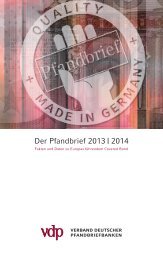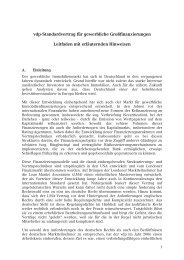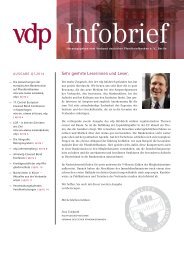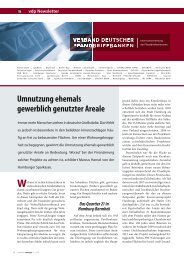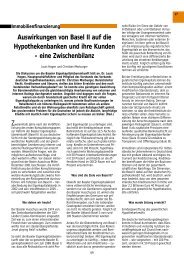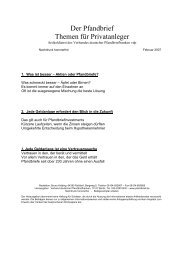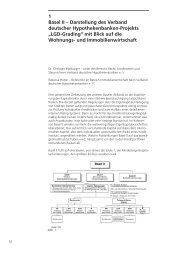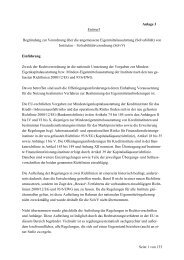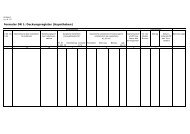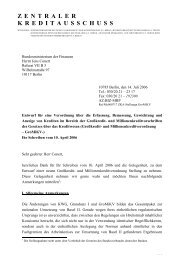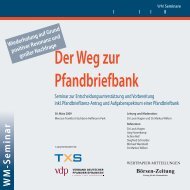The Pfandbrief 2011 | 2012
The Pfandbrief 2011 | 2012
The Pfandbrief 2011 | 2012
Create successful ePaper yourself
Turn your PDF publications into a flip-book with our unique Google optimized e-Paper software.
liabilities and which plan to optimise their regulatory capital requirements. In QIS5, both government<br />
debt and mortgage loans required lower solvency capital requirements. Ignoring all<br />
other decision-making criteria, investors would thus prefer these assets when creating their<br />
investment portfolio.<br />
In addition to the solvency capital requirements that have been the main focus of this<br />
paper, Solvency II also introduces changes to the valuation of assets for regulatory purposes.<br />
This also has an impact on <strong>Pfandbrief</strong>e. Under Solvency II, all investments will in future be<br />
valued on the basis of their current value. This will generally have the effect of increasing the<br />
volatility of balance sheet values on the asset side. As a result, Solvency II could render one<br />
major reason to design <strong>Pfandbrief</strong>e as registered bonds irrelevant. <strong>The</strong> increased volatility in<br />
the regulatory balance sheet could be problematic, even if accounting principles in accordance<br />
with German commercial law are not affected by Solvency II. In some circumstances, insurers<br />
with long-term liabilities will have a particularly strong incentive to change their management<br />
of the asset and liabilities sides conforming to short-term volatility in their regulatory balance<br />
sheet, although their obligations will not have to be serviced for many years.<br />
Overall, however, <strong>Pfandbrief</strong>e will continue to play a very important role in the investment<br />
allocation of German insurers as a result of their excellent credit ratings, stable returns and<br />
established infrastructure.<br />
43



